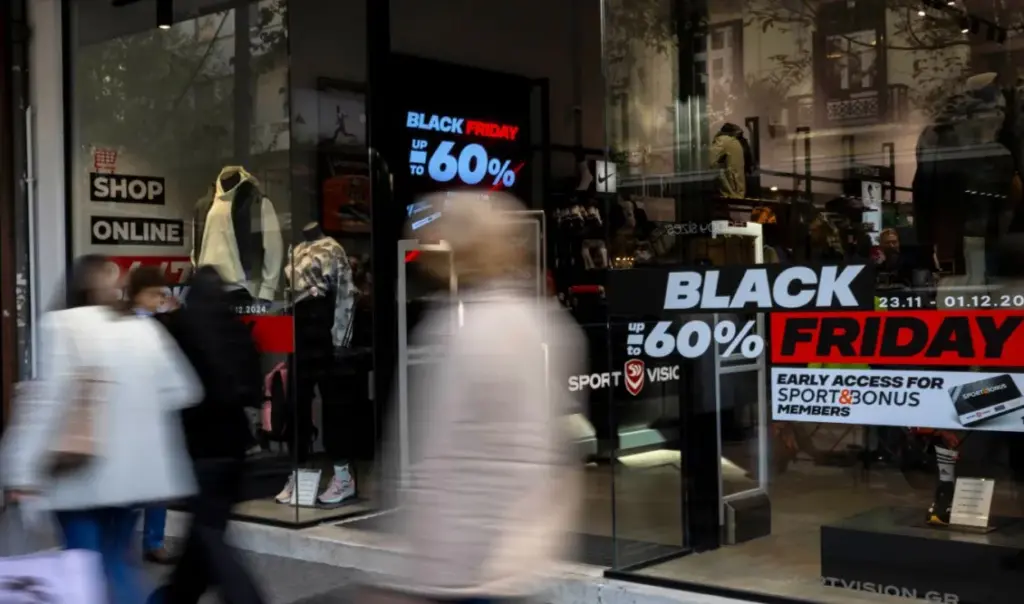Parapolitika.gr conducted an online survey on Greek consumers’ shopping habits during Black Friday, from November 12 to 19, with 500 participants. The results reveal an audience that approaches the major sales period with intense skepticism, yet continues to seek opportunities — albeit with particular reservation.
Black Friday, once considered a celebration of deals, today appears to provoke more skepticism than enthusiasm, while consumers declare themselves more conscious and selective than ever.
Demographics of Black Friday survey participants
The largest age groups had the highest participation, showing that citizens with more stable purchasing power are more interested in expressing opinions about consumer trends.
● 55–64 years: 30%
● 45–54 years: 29%
● 65+ years: 15%
● 25–34 years: 12%
● 35–44 years: 11%
● 18–24: 1%
● Under 18: 1%
● No response: 2%
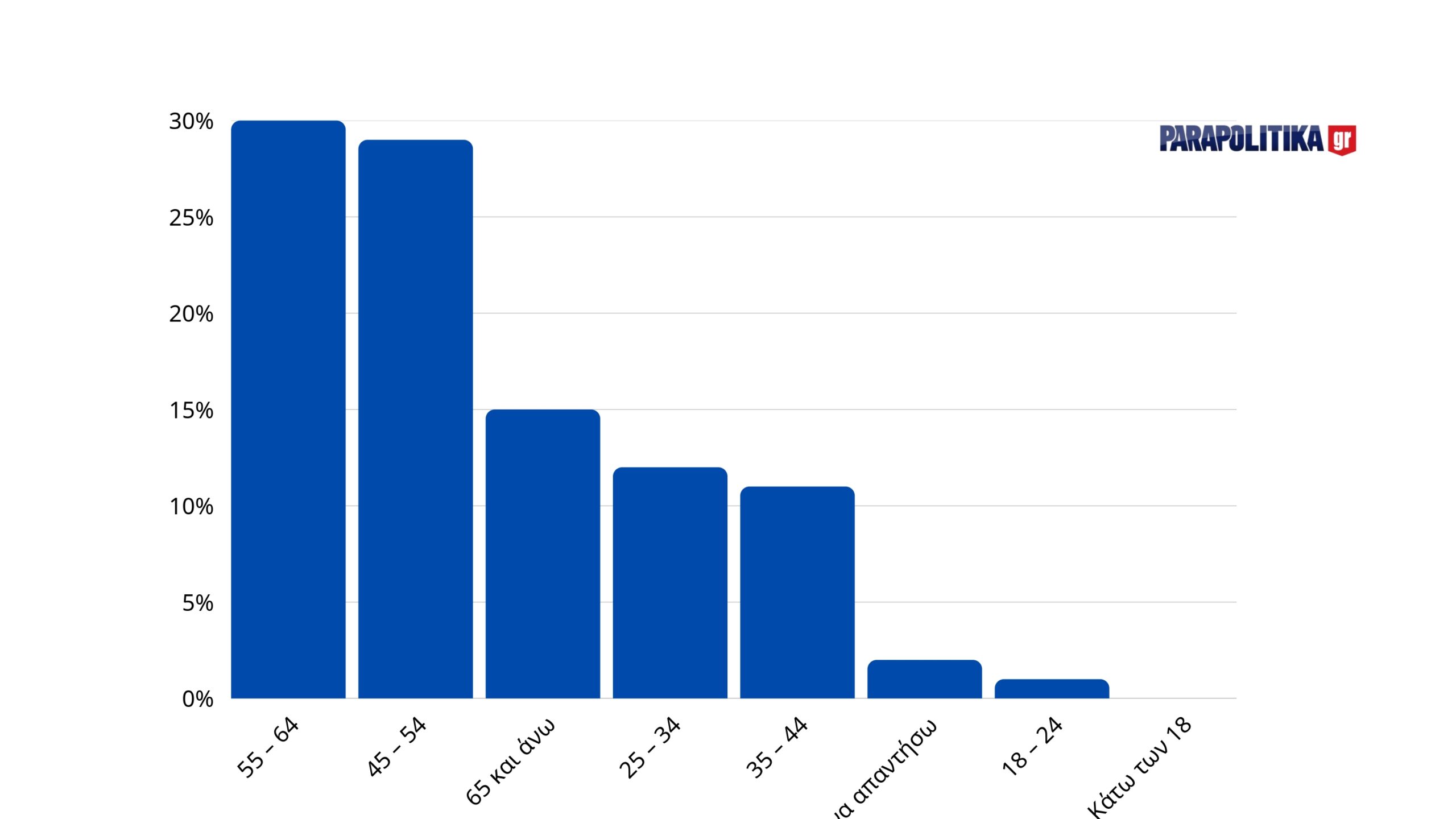
Distrust at historic high: Only 9% believe deals are genuine
In the survey’s most critical question, responses paint a clear picture: Greeks don’t trust Black Friday.
● 59% believe some deals are real, but many are “fake”
● 32% think it’s mainly a marketing trick
● 9% believe there are good deals
Overall, 91% express suspicion toward the day’s “discounts,” revealing that consumers now research, compare, and aren’t easily swayed.
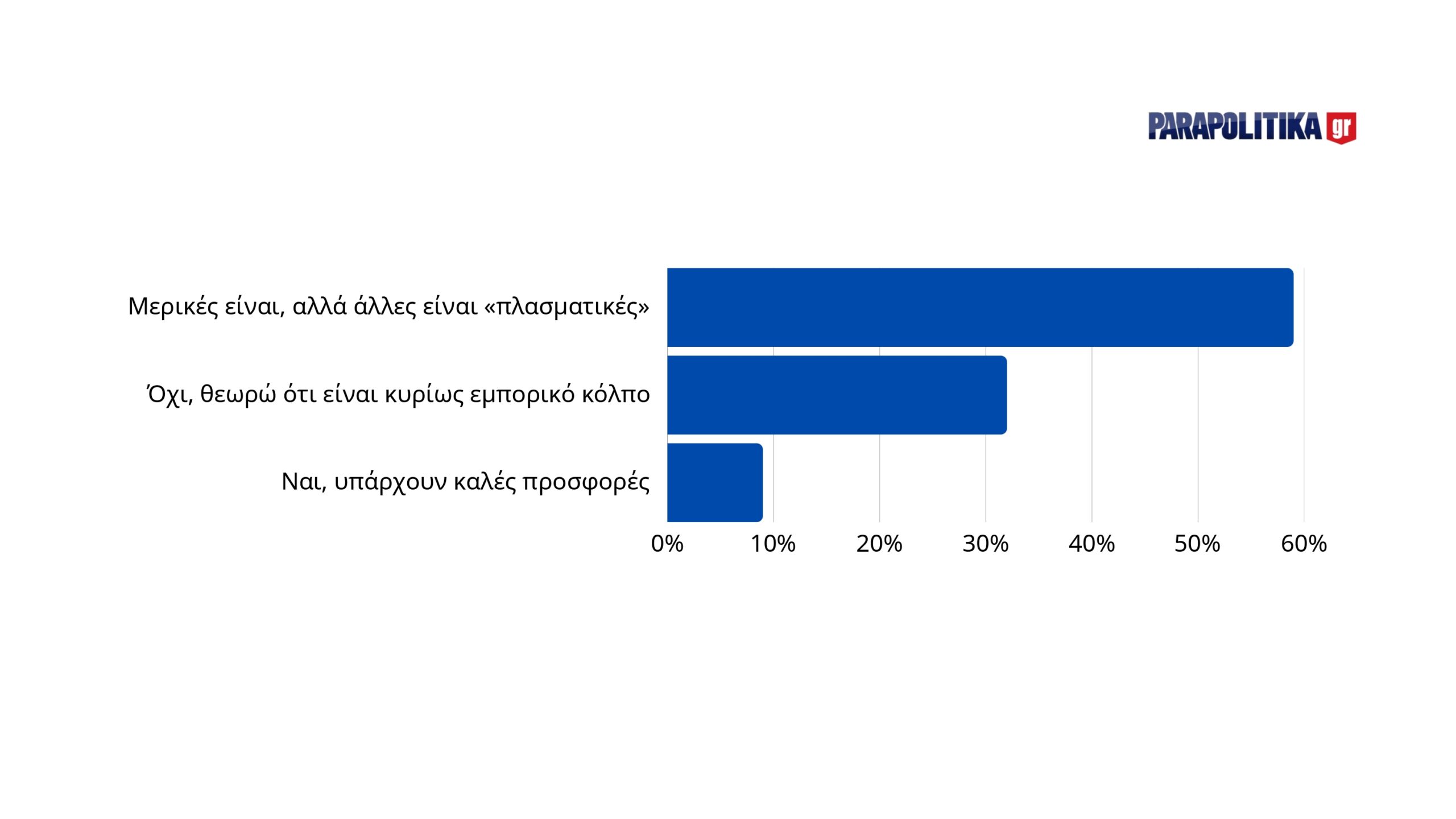
Do Greeks shop on Black Friday? The answer is “yes but in moderation”
Despite distrust, citizens don’t completely reject Black Friday.
● 71% shop occasionally, but only if they find something worthwhile
● 18% aren’t interested at all
● 11% shop every year
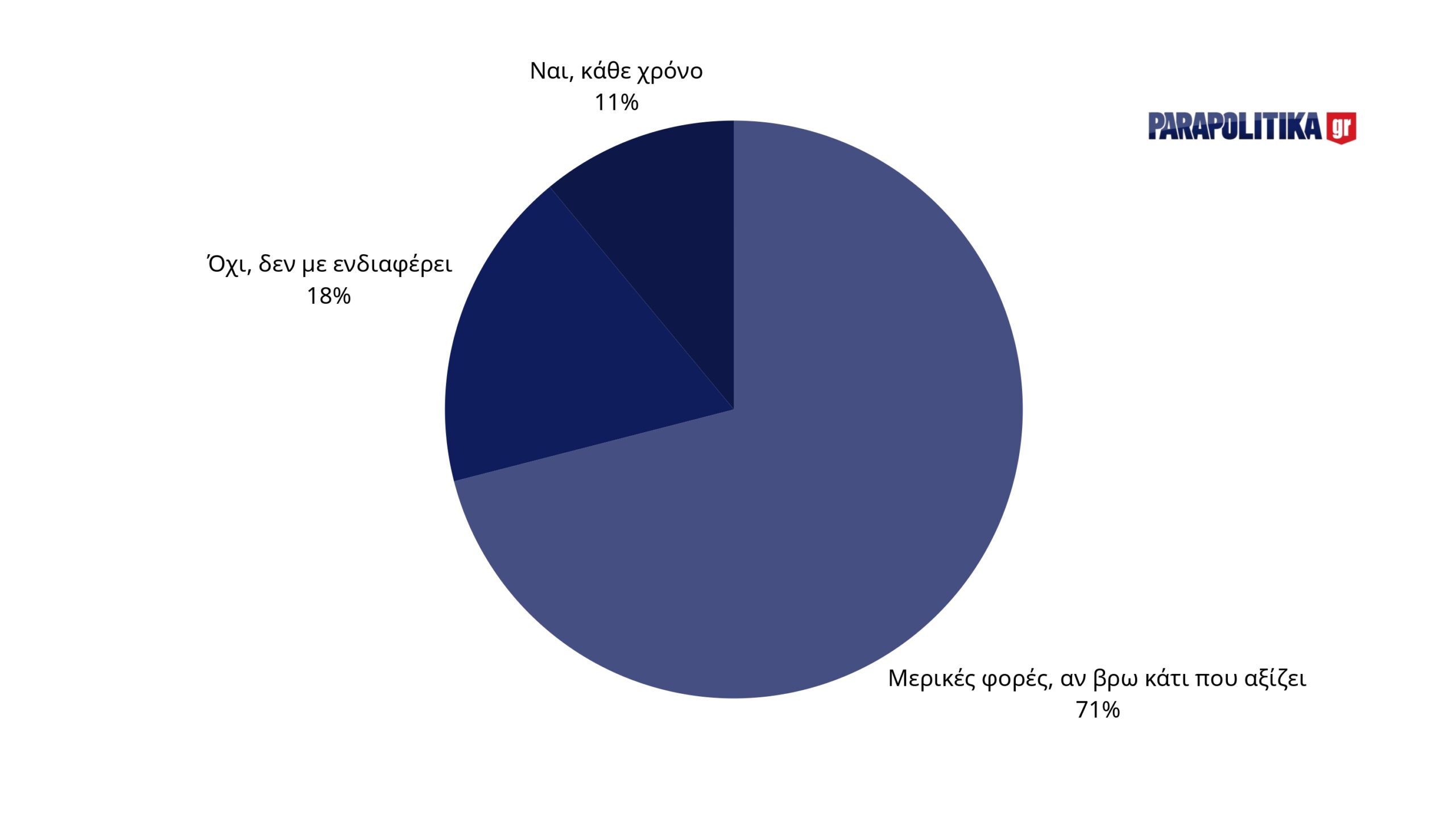
The picture shows Greeks are “rational” consumers who wait for specific opportunities rather than blind discounts.
What they usually buy – Electronics remain king
Participants prefer specific product categories, with electronics staying on top:
● 32% electronics (phones, laptops, TVs, gadgets)
● 25% clothes & shoes
● 22% home items / electrical appliances
● 11% “Other” category (travel, subscriptions, games, etc.)
● 10% beauty products / cosmetics
This aligns with international data: consumers primarily associate Black Friday with technology and devices.
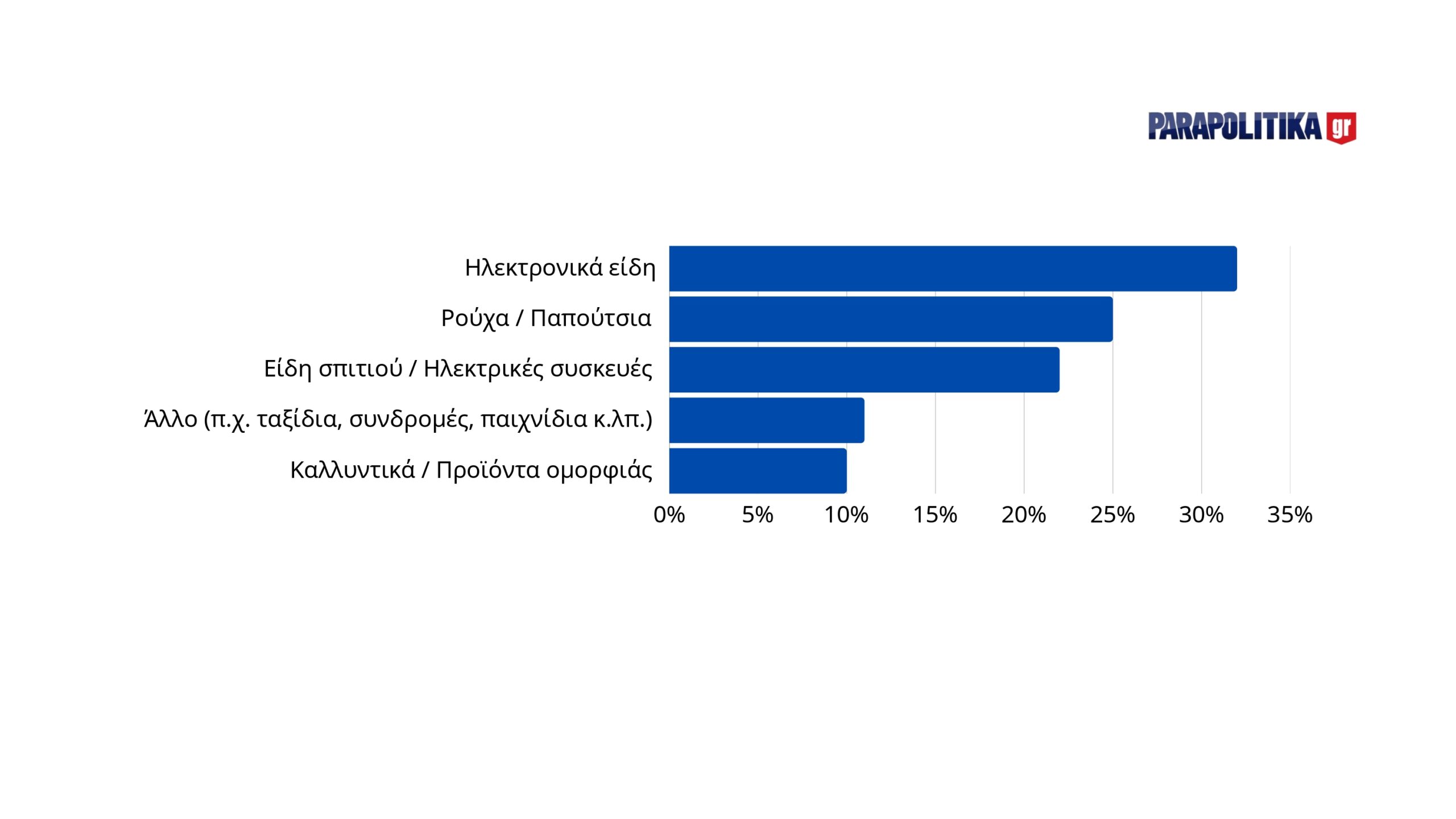
When do they shop? Black Week beats Black Friday
The “discount day” has now transformed into… a week of deals.
● 57% prefer shopping throughout Black Week
● 15% choose Black Friday itself
● 6% wait for Cyber Monday
● 22% don’t shop at all
Extending the deals appears to work, as Black Friday is no longer a single-day phenomenon but a multi-day consumer period.
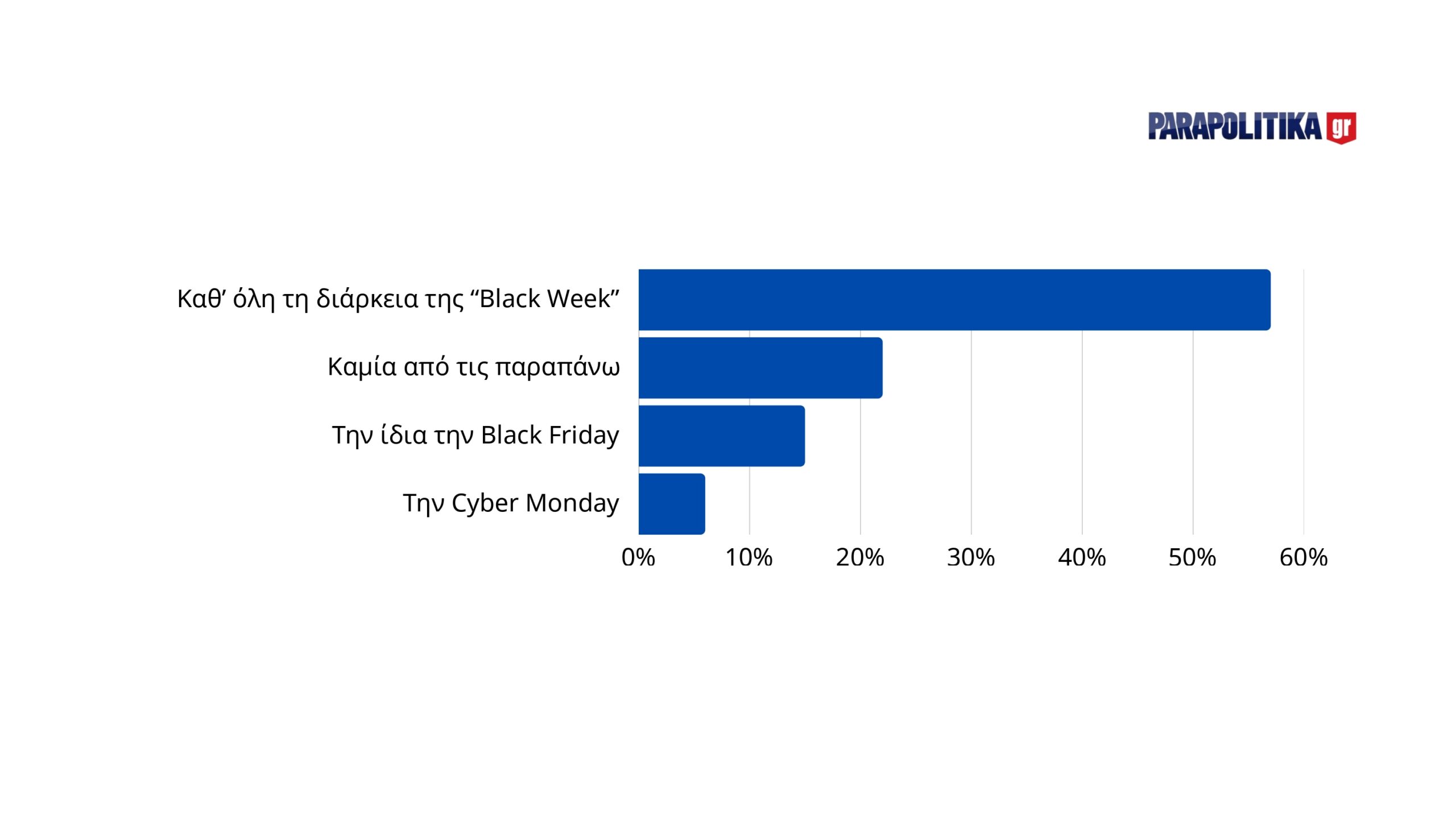
Online or physical store? Preference is split
The survey shows Greek consumers don’t have absolute orientation but combine shopping channels.
● 36% shop from both e-shops and physical stores
● 35% exclusively from e-shops
● 29% exclusively from physical stores
Online shopping trends are increased, but physical stores maintain strong presence, likely due to desire for immediate testing and product evaluation.
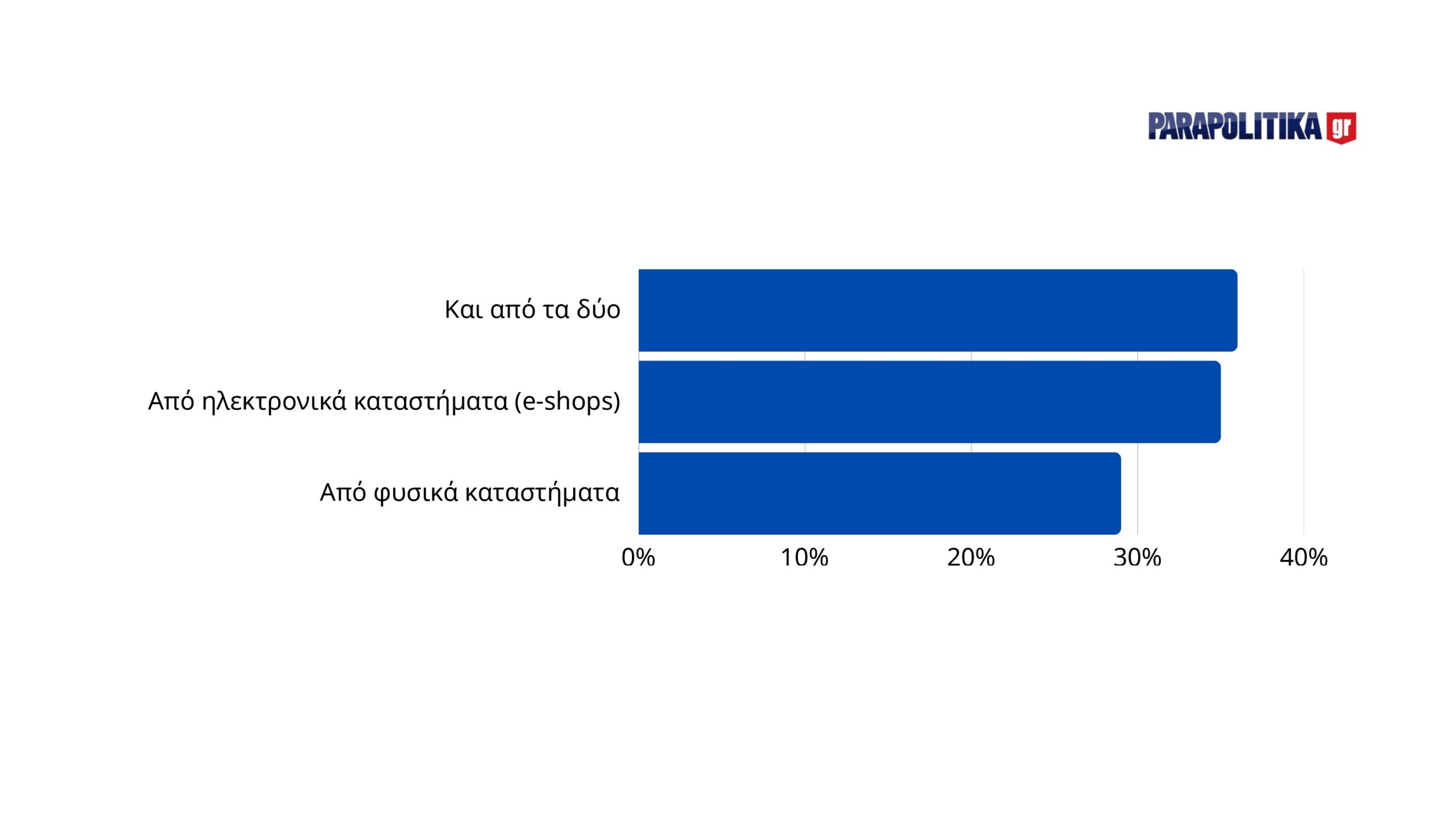
Why do they buy on Black Friday? The “long-awaited opportunity” is the main reason
Motivations are clear and connected to purchase value:
● 35% buy something they’ve wanted for a while because they find it an “opportunity”
● 28% say prices are better
● 22% don’t buy because they don’t trust the deals
● 15% get carried away by advertising and excitement
The audience appears mature and careful, avoiding impulsive purchases unless they believe the price is truly beneficial.
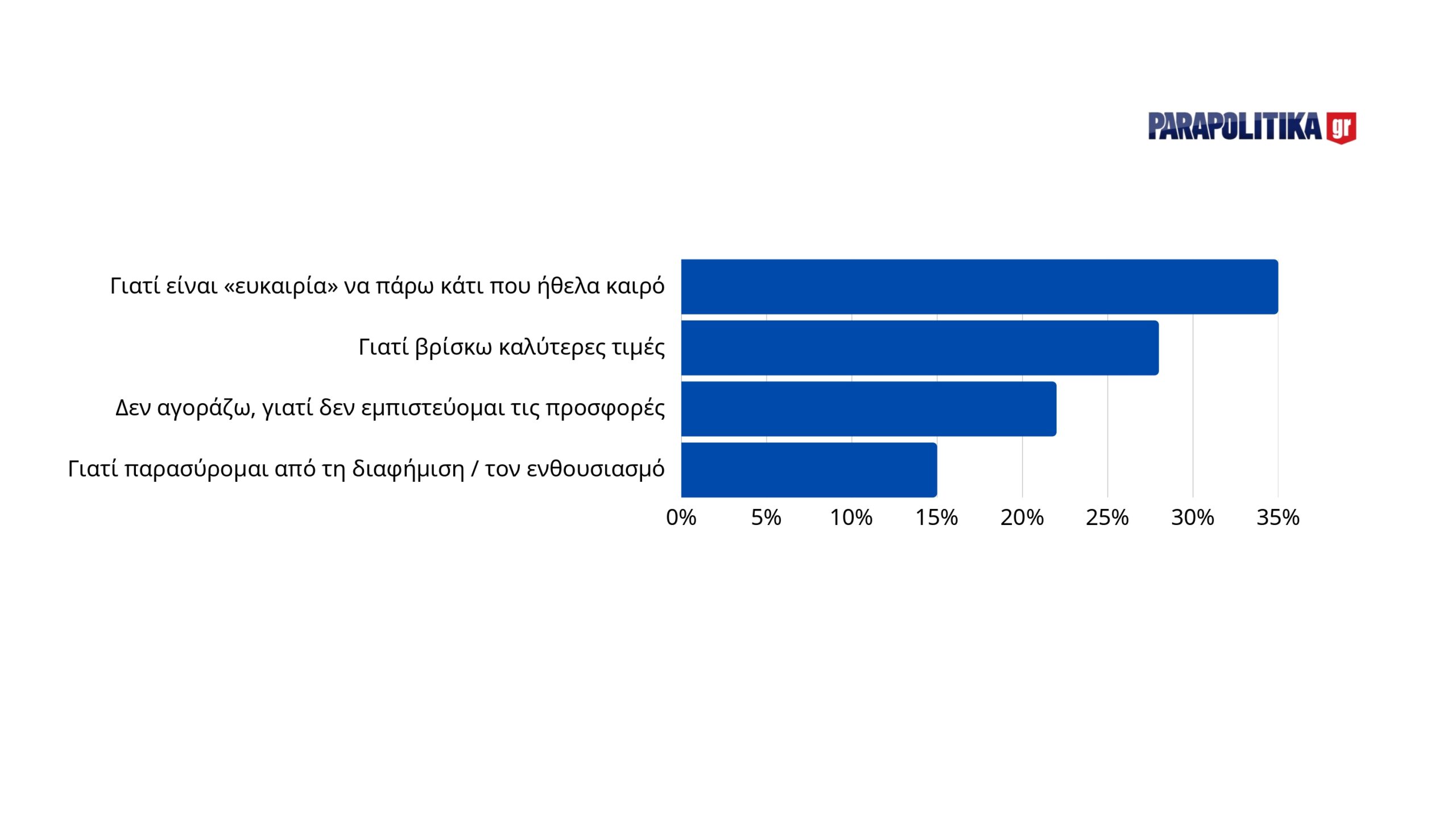
How much do they plan to spend this year? Restrained but not negligible amounts
Responses show a society carefully measuring costs. 30% say they don’t plan to shop at all. The rest predict specific budgets:
● 25%: €51 – €150
● 21%: €151 – €300
● 14%: over €300
● 9%: up to €50
Despite economic pressure, a significant percentage (35%) plans to spend over €150. This shows Black Friday continues to be an important consumer moment, even under conditions.
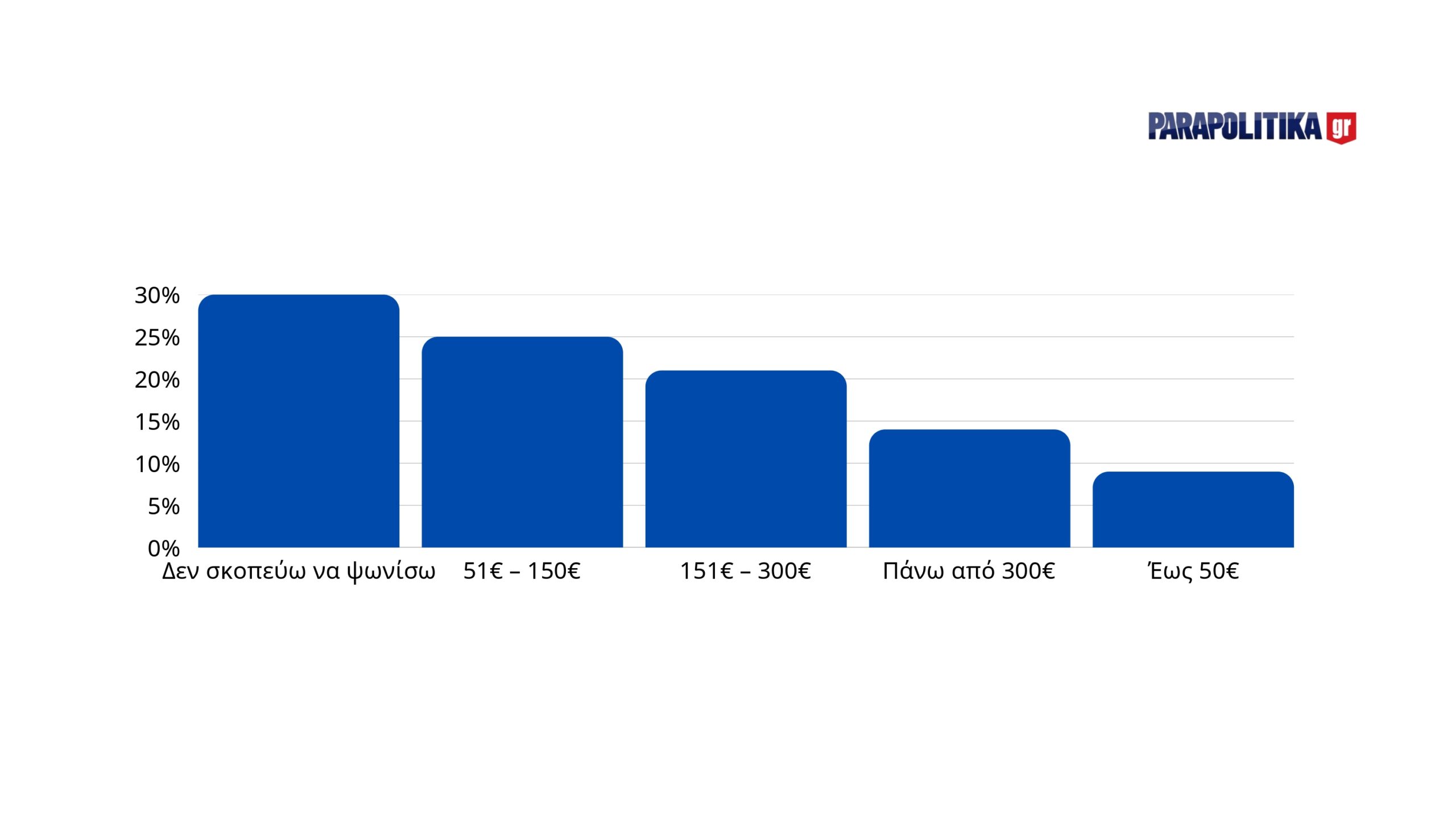
Are they influenced by influencers? The answer is categorical
Social media influence appears almost non-existent for Black Friday.
● 85%: Not influenced
● 11%: Sometimes influenced
● 4%: Often influenced by influencers
Despite intense social media marketing, citizens say their purchases are based mainly on their own research rather than content creator suggestions.
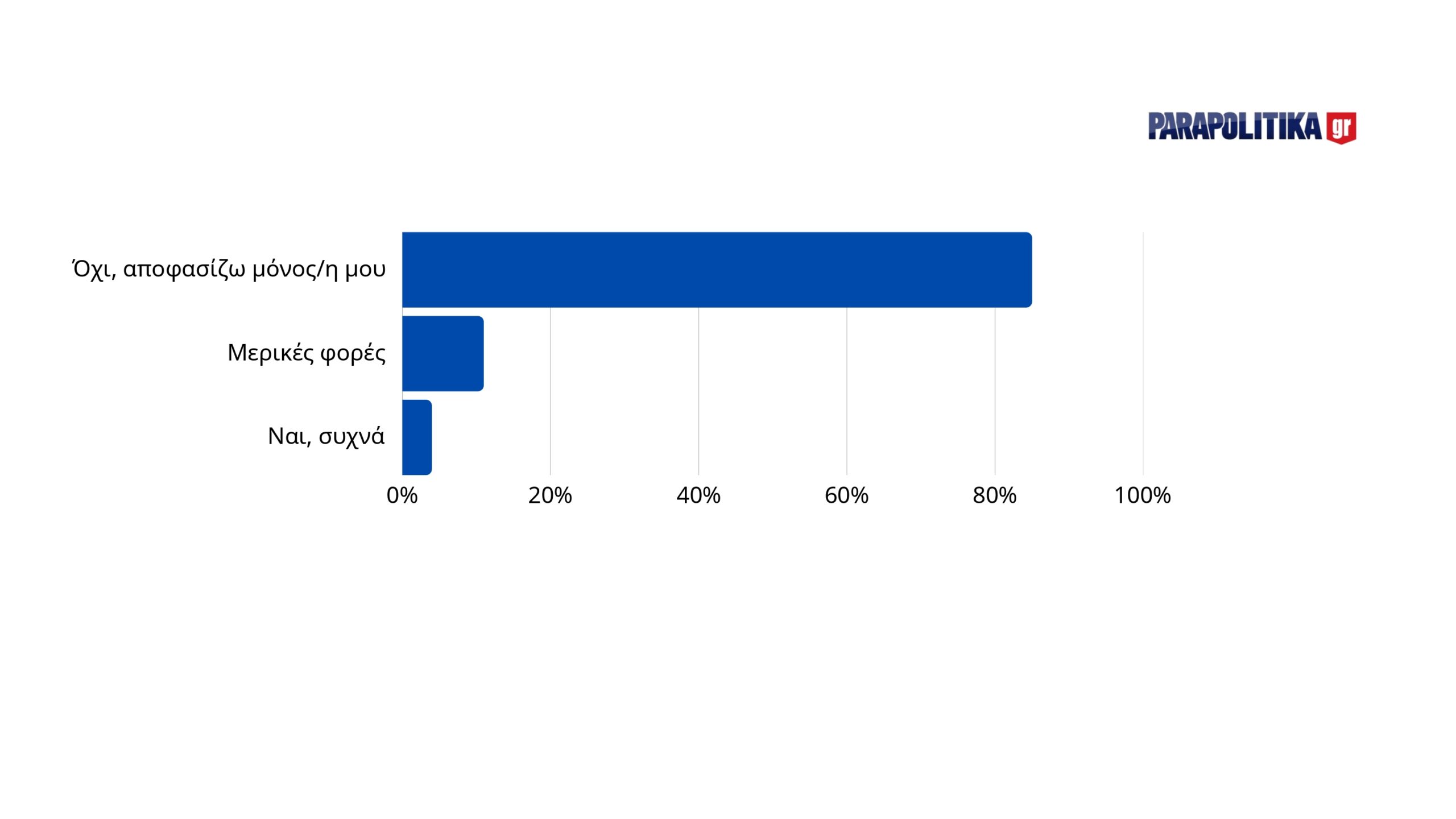
The results reveal an audience that approaches Black Friday with awareness, caution, and clear priorities. Distrust toward “big deals” has solidified, with only 9% convinced that discounts are real. Nevertheless, Greeks continue seeking targeted opportunities, carefully choosing what, when, and how much to buy.
Black Friday continues to be an important point on the consumer map, but the era of spontaneous purchases has passed. The audience is more mature, more suspicious, and more value-oriented rather than impressed by dramatic discount percentages.

